The Best Organic Fertilizers For a Vegetable Garden
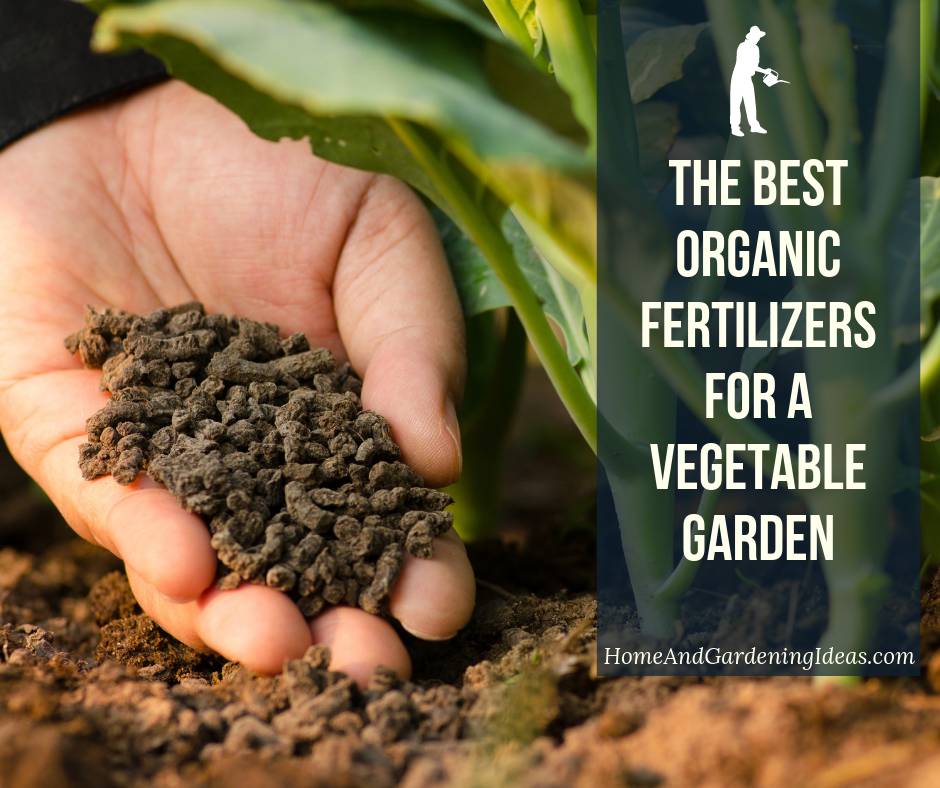
Growing a vegetable garden is a great way to save money, eat fresh garden-grown produce and enjoy nature right at your backyard; no matter where you live – in the city or outside the city. However, the fact is that managing a vegetable garden is not as easy as it seems when you hear about it. But if you’ve decided to grow your vegetable garden, there’s one vital thing you would need to do which is to fertilize your garden.
For that, it’s best not to use inorganic or chemically produced fertilizers because the harvested produce can usually not be compared in terms of quality, flavor and nutrients to the organically fertilized produce of an organic vegetable garden. There is also the fact that organic fertilizer also helps to improve the structure and workability of your vegetable garden soil. From the inexpensive choices to the expensive choices, this article is going to enlighten on the best organic fertilizers for a vegetable garden.
Here are some of the best organic fertilizers for your vegetable garden:
Animal Manure
The waste products of herbivorous animals like chickens, rabbit, cows and horses can be a great fertilizer for your vegetable garden. Manure is the go-to choice for many people who rear livestock and grow a vegetable garden. And there are many businesses that sell bagged dried manure. Manure is very good for your vegetable garden because it adds nitrogen, phosphorus and potassium to the soil, the major nutrients needed by all crops. These nutrients can be added to your vegetable garden before and during the growing period of your food crops.
However, there is one rule to adding manure to your vegetable garden. You have to make sure that the manure is well-dried, composted and aged because fresh manure can pass harmful bacteria to your crops or burn them. It’s best that you mix your manure with alfalfa, hay or straws and leave it to compost for more than nine months before you add it to your vegetable garden.
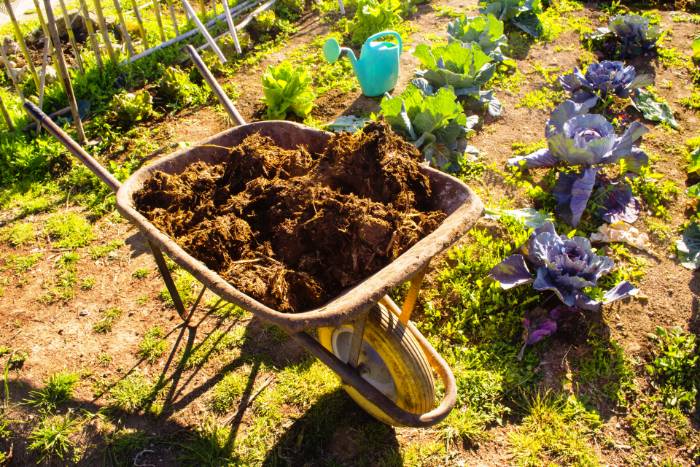
Liquid seaweed and fish emulsion
Liquid seaweed is made with kelp and contains more than forty different nutrients and minerals which are very beneficial to both the plant and your garden soil. They even help to inoculate your seedlings and increase their chances of germination. Fish emulsion also has very impressive effects on plants in different stages in their lives from germination to maturity. It is made by pulverizing fish and leaving it to decompose. Many people have learnt how to combine seaweed and fish emulsions together to feed their plants and soil with important nutrients that they may be lacking in any way.
Compost
Compost is every vegetable gardener’s close friend. It is widely used for two purposes: as a fertilizer and for soil amendment. And the best part is that compost can be easily created from refuse like vegetable and fruit peelings. If you can’t make your own compost, you can easily buy it from a garden center close to you. You can add compost to your garden soil before you start planting to stimulate a perfect soil texture and condition for your soil. You can also add it to the soil when your plant seedlings have been established.
Applying compost to your vegetable garden is a great idea because it can produce higher crop yields and protect crops from root-related diseases like root rots which is common to root vegetables like carrots. Compost also helps you to increase the activities of earthworms in the soil and adds microorganisms that are highly advantageous to your soil.
Apart from compost, there is also compost teas created from the liquid of steeping compost. It can be used to water your plants and contains the nutrients that your plants need.
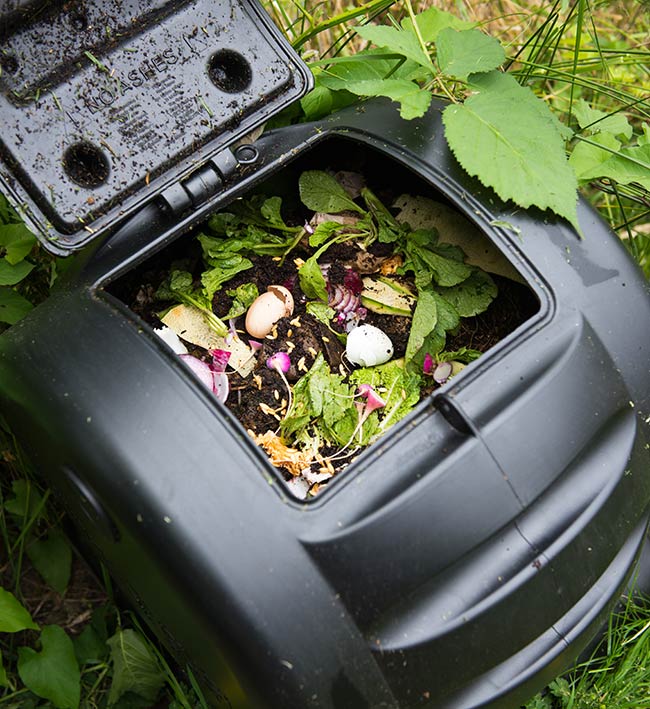
Blood meal
Blood meal is an organic fertilizer made from the dried, powdered form blood of cattle. It is a great source of nitrogen for your plants and it can be applied as top dressing to your soil or mixed with compost. However, you have to be careful and apply blood meal to your soil in small quantities as it can also burn the roots of your plants.
Bone meal
Bone meal is a very beneficial bye-product that can be gotten from animal slaughterhouses with important nutrients like calcium and phosphate. They help to improve the growth of root plants and fruit trees.
Bat Guano
Bat guano is made from bat dung and is a pretty popular organic fertilizer that has been used for a long time to condition and enrich the soil. It has nutrients like phosphorus, nitrogen, potassium and trace elements. In addition to controlling the nematodes in the soil, it can also be used to activate your compost to increase the speed of decomposition.
It can be worked into the soil as top dressing or the tea can be used to water your plant. It can also be used fresh or dried. However, because it has a high concentration of all nutrients, it is wiser to apply it in smaller concentrations.
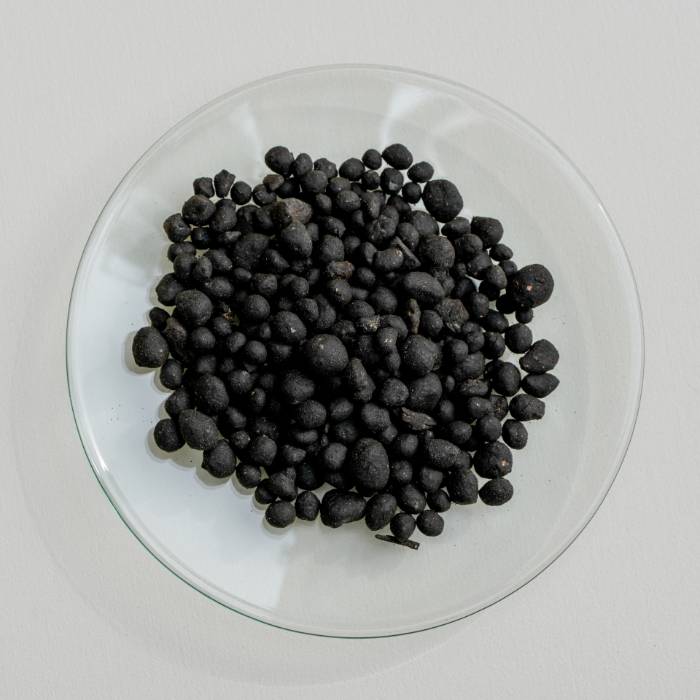
Rock Phosphate
Many vegetable garden soils have lots of nutrients but inadequate minerals. Thankfully, there are organic fertilizers like rock phosphate which can be added to the soil. This way, the roots of your vegetables can take the calcium and phosphate minerals slowly as they grow. Rock phosphate simply means grounded rock phosphate powder.
Earthworm Castings
Just like earthworms are important for your vegetable soil, their castings are also one of the best organic fertilizers for your soil. This is because there are beneficial microorganisms and nutrients in earthworm castings that are essential for your soil. The microorganisms from worm castings help your plants to breakdown organic matter and make it easier for them to take them in. You can buy a bag of earthworm castings but you can also choose to vermicompost and farm your own worms so you can easily gather their casting. Once you’ve gotten the castings, you can apply them as top dressing or work them into the soil.
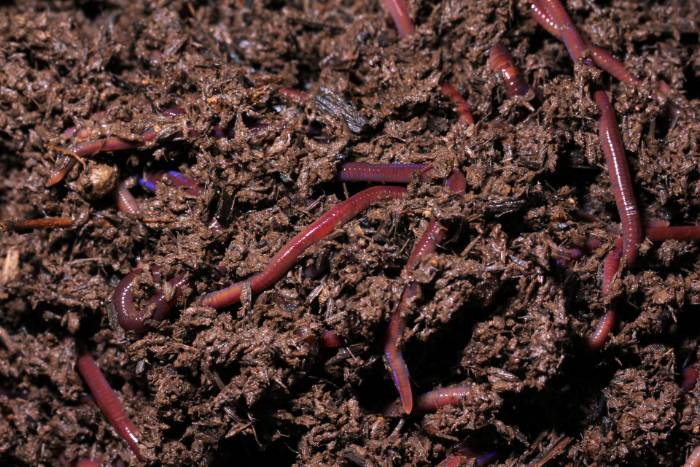
Conclusion
Organic fertilizers can help to condition the soil of your vegetable garden and improve the quality, yield and flavor of your garden produce. But if these fertilizers are not properly applied to your vegetable garden, they can be pretty harmful to your soil and your vegetables. This is why it is important that you have the adequate knowledge of the nutrient constituents and requirements of your garden soil and vegetable crops before you use these organic fertilizers.
 Home and Gardening Ideas At home and Gardening ideas we believe inspiring readers about homesteading, self sufficiency
Home and Gardening Ideas At home and Gardening ideas we believe inspiring readers about homesteading, self sufficiency

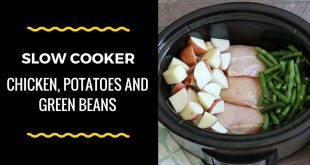


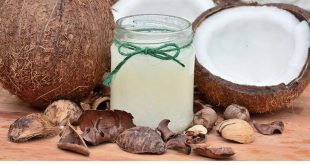

One comment
Pingback: The Best Organic Fertilizers for a Vegetable Garden